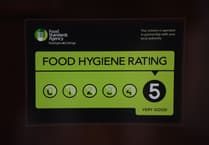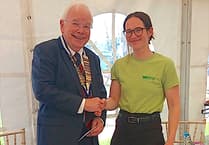A PRIMARY school in St Austell has been selected to take part in a new nursery places initiative.
Pondhu School is involved in a national scheme which will see the roll-out of 300 new or expanded school-based nurseries by converting classrooms into early years spaces.
These new nurseries will help deliver additional places needed for a scheme which, from September, will see working parents getting 30 government-funded hours of childcare a week, from nine months of age up to starting school.
The first 300 schools will see an average of 20 childcare places per site, with up to 4,000 of these available by September and a further 2,000 later in the autumn.
The government says places will be focused on childcare “deserts’” where up until now families have been missing out because of a shortage of places.
Noah Law, MP for St Austell and Newquay, said: “I am thrilled that Pondhu School has been given funding as part of Labour’s plan to roll out school-based nurseries.
“I know from speaking to families across my constituency the need for high-quality education that is available nearby and doesn’t break the bank.
“I look forward to visiting the nursery when it opens in September.”
Meanwhile, the Labour MP has met up with fathers in St Austell to discuss issues affecting them as they bring up children.
Mr Law chatted with fathers at the Trinity Cafe in the town centre as part of an initiative involving the Dad Shift campaign group.
He said: “In 2015, the Coalition Government introduced Shared Parental Leave (SPL), by which mothers can share some of their leave allowance with their partners. However, with uptake of SPL at less than two per cent nationally, momentum is building behind calls to improve the UK’s paternity leave, which, at two weeks paid at less than half the minimum wage and no entitlement for self-employed people, is now one of the least generous in Europe. Self-employed dads are paying National Insurance but not receiving any support.
“Even though mothers can share some of their maternity leave with their partners, because of workplace realities, and men and women’s pay differentials, the reality is that uptake of shared paternity leave is less than two per cent.
“Although there are some good laws in place, the incentives behind them aren’t working properly, we don’t have equal paternity rights in this country and lag far behind countries like Sweden and Finland.
“When paternity leave is taken, it’s too short which doesn’t reflect the time needed for dads to help mothers recover after giving birth, let alone focus on those crucial early months of child development.
“What’s also sad is that these disincentives are viewed by many to be too much of a burden and our state needs to recognise better that while children, of course, are a huge upfront investment they do, of course, provide huge joy and quality of life for many as well as massive long-term economic sustainability returns, albeit 20 years down the line.”



